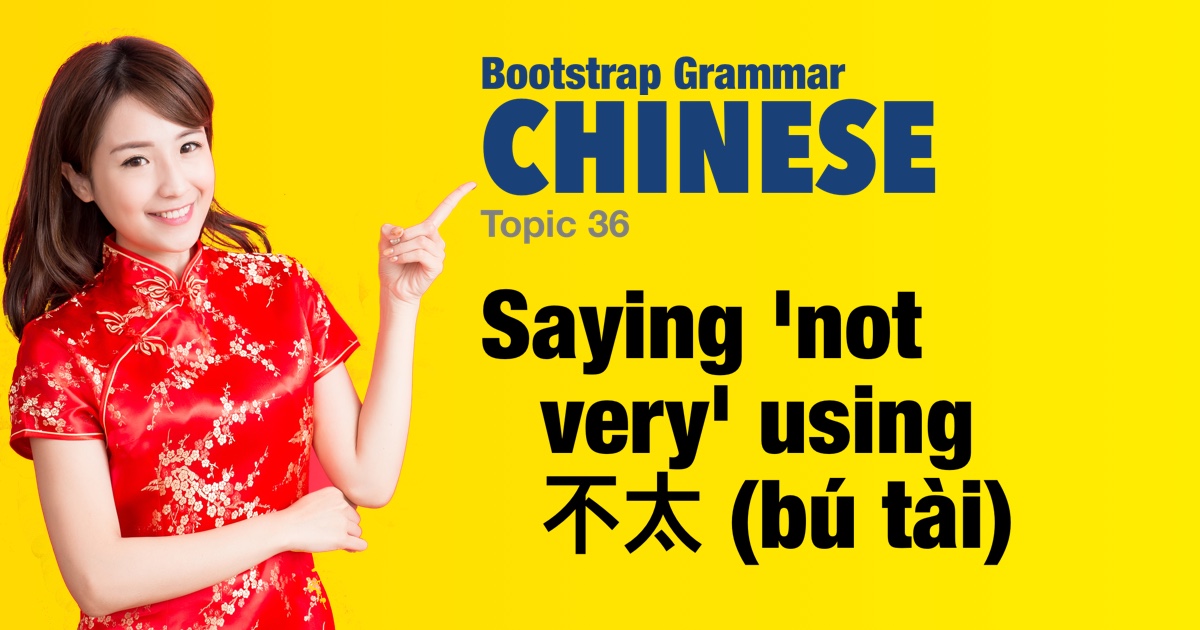Chinese grammar - Saying 'not very' using 不太 (bú tài) |
|||
|
|||
As covered previously, negating adjectives can be achieved simply by using the negative particle 不 (bù). In Chinese, the phrase 不太 (bú tài) can be used to say 'not very'. Like the negating 不, 不太 takes the place of the connector 很 (hěn) before the adjective. |
| Examples: | |
|
那棵树很大。这棵不大。
nà kē shù hěn dà.#zhè kē bú dà. That tree is big. This one is not big. |
|
|
这个问题很容易。这个不太容易。
zhè ge wèntí hěn róngyì.#zhè ge bú tài róngyì. This question is easy. This one is not very easy.
|
|
|
这些书很贵。那些不贵。
zhè xiē shū hěn guì.#nà xiē bú guì. These books are expensive. These ones are not expensive. |
|
|
这个很大。那个不太大。
zhè ge hěn dà.#nà ge bú tài dà. This one is big. That one is not very big. |
|
|
这两个很大。那三个不大。
zhè liǎng ge hěn dà.#nà sān ge bú dà. These two are big. Those three are not big. |
|
|
这三个苹果很小。这三个不小。
zhè sān ge píngguǒ hěn xiǎo.#zhè sān ge bù xiǎo. These three apples are small. These three are not small. |
|
|
那些玩具很可爱。这些不可爱。
nà xiē wánjù hěn kě'ài.#zhè xiē bù kě'ài. Those dolls are cute. These are not cute.
|
|
|
这个问题很重要。那个不重要。
zhè ge wèntí hěn zhòngyào.#nà ge bú zhòngyào. This question is important. That one is not important.
|
|
|
这辆车很快。那辆不太慢。
zhè liàng chē hěn kuài.#nà liàng bú tài màn. This car is fast. That one is not very slow. |
|
 |
|



 The tone changes from bù (4th tone) to bú (2nd tone) when
The tone changes from bù (4th tone) to bú (2nd tone) when 